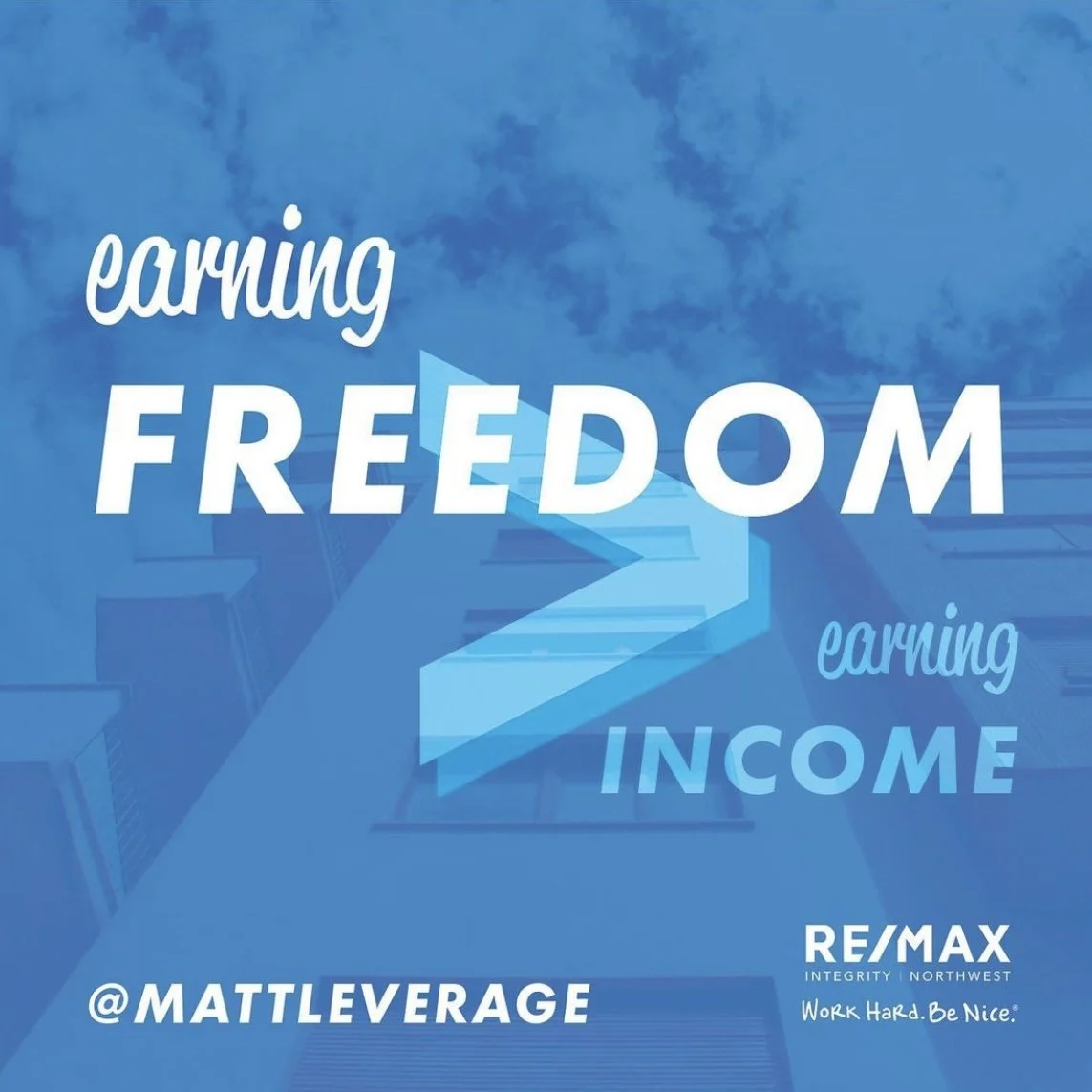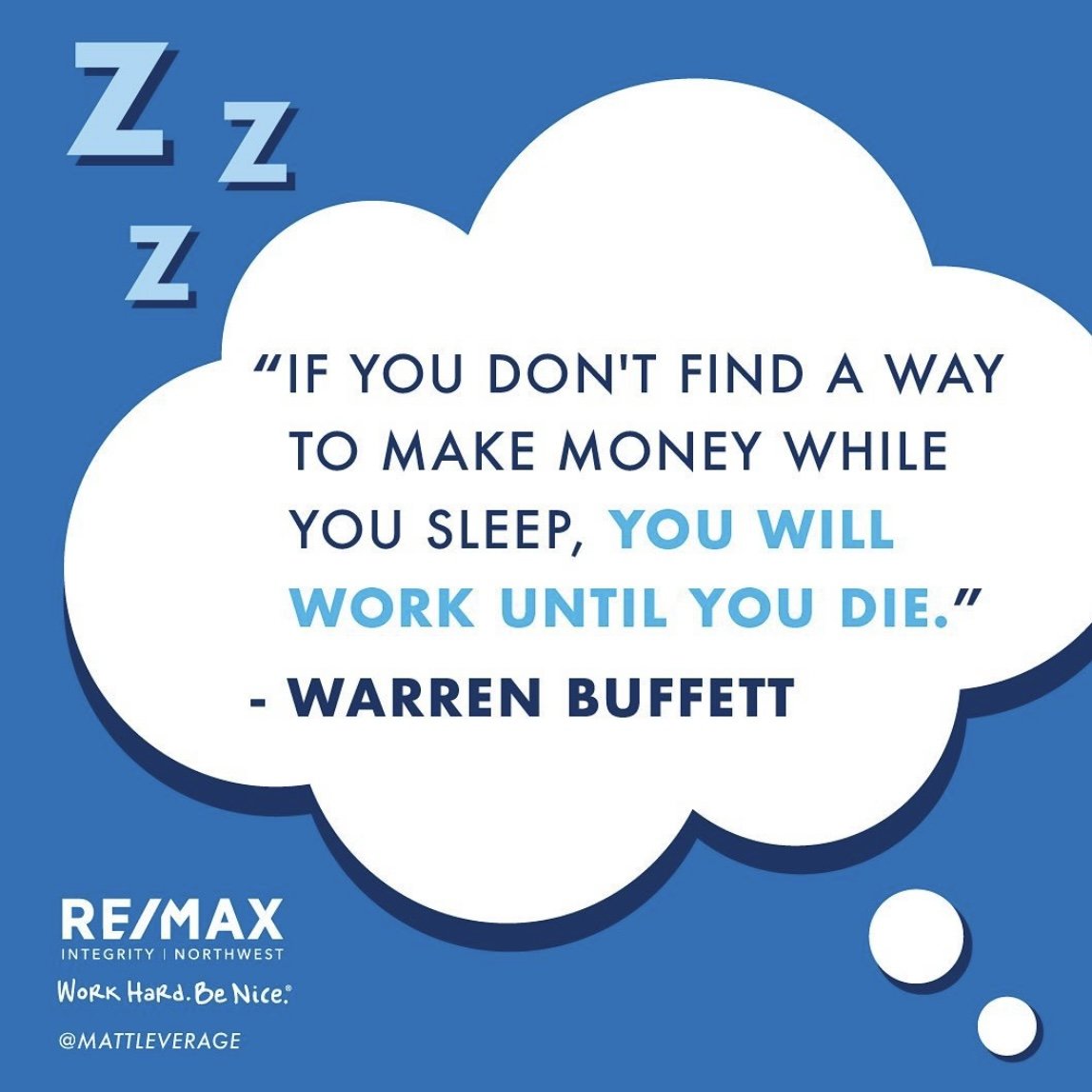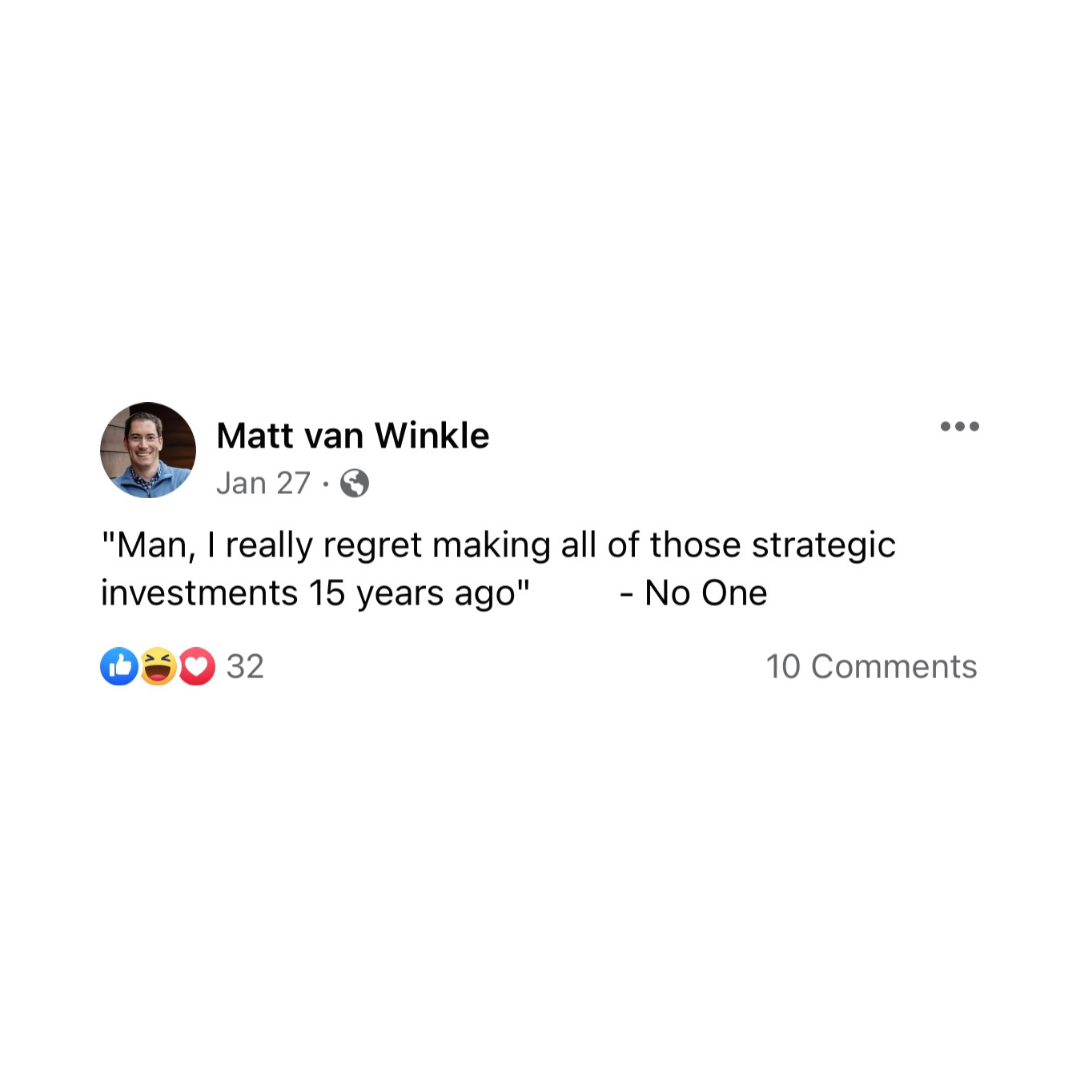Content Strategy & Management
Financial Literacy Campaign
Problem: In real estate, most all brokerage and business coaching accounts look the same. When you open a brokerage’s social media account, you can expect to see some assortment of sold home photos, market updates and maybe the occasional agent shoutout. The RE/MAX Northwest page was no different… Beyond the lack of originality, a greater problem lied in the market-wide subpar engagement rates, which indicate a widespread lack of user interest and relevancy to the material at hand.
Solution: With the knowledge that the company was looking to venture into real estate investment, as a content manager, I saw an opportunity.... Let’s teach our agents about financial literacy Most brokerages are pushing their agents to make money, but no one is telling them how to manage it. So why not offer free education to build brand awareness and cultivate a loyal following? In the execution of this plan, I wrote all social media copy as shown below. This also included writing video scripts, creating/implementing strategy and reporting on performance.
Research: With this problem at the top of mind coming into this role, I sat down with the CEO to discuss the long and short-term goals of the company. In this case, these goals included venturing into the real estate investment space in the near future. It was also shared with me that the company was looking to revamp and promote its real estate coaching program. Using this information, I conducted extensive industry research in the real estate, financial and business coaching spaces. I found that short-form, educational content was absolutely crushing the metrics in not one, but all of these industries across digital platforms.





Brand Continuity Strategy
Problem: When I was brought on to RE/MAX Northwest, the company was facing a challenge in the realm of continuity across its brands. After acquiring RE/MAX Integrity in 2020, there was an immediate discussion around whether or not RE/MAX Integrity would keep its name (which has built valuable credibility and goodwill in the community over the course of 15 years) or take the name of its acquirer for the sake of continuity. Further, the company also had 2 real estate coaching brands under the names Full Leverage & Full Leverage Agent. With that, the CEO was also looking to cultivate a personal brand to round out a holistic digital presence around the various brands and their offerings.
Solution: With so many brand names scattered across various digital platforms, it was important to bring unity to the brand portfolio in an effort to maximize marketing dollars and increase brand transparency from the perspective of the user. For this reason, I ultimately implemented a 5-phase plan to transition the brokerage’s name across the board to RE/MAX Leverage, a name that the CEO had been toggling with for years. From there, we kept the name Full Leverage for the coaching programs, and branded our CEO’s social media name to “Matt Leverage” - a quirky but strategic name change to strategically associate him more clearly with his brand portfolio. We also named our next upcoming project to be released in coming years according to this cadence by titling the venture “Full Leverage Capital.”
Research: In order to resolve this challenge, I pulled a series of analytics across the brokerage, coaching program users as well as our CEO’s social media following. I looked at the size of each audience, their engagement levels, conversion rates as well as revenue generated from each arm of the business portfolio. The findings of which indicated strong revenue from each, with most brand recognition and awareness currently residing within the greater RE/MAX franchise network. With this knowledge, I was able to conclude that any sort of rebrand messaging would primarily need to focus on communicating with the brokerage’s network, and that confusing the general real estate network outside of the company was of little concern. Therefore, we could commence any rebrand or name change to the general public without concern of losing revenue or goodwill from the online community.




